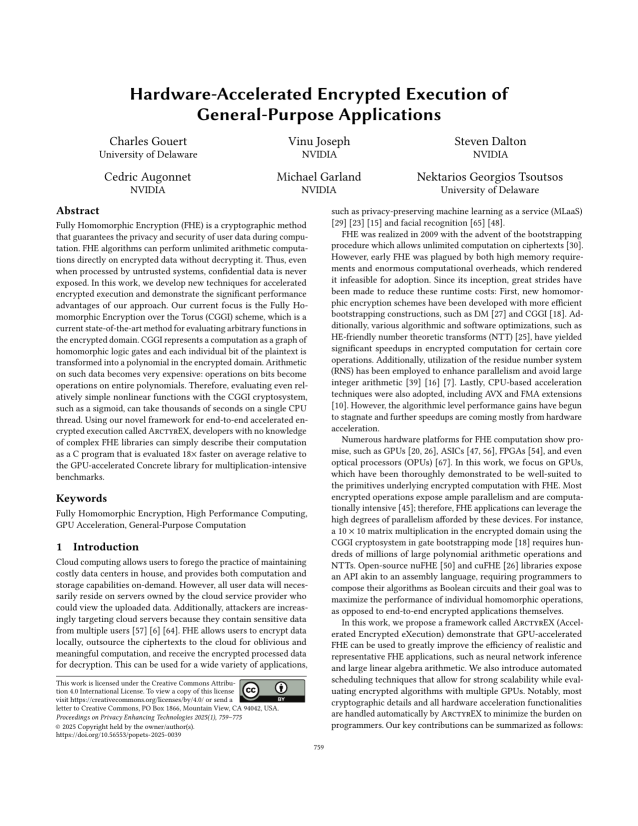Hardware-Accelerated Encrypted Execution of General-Purpose Applications
Authors: Charles Gouert (University of Delaware), Vinu Joseph (NVIDIA), Steven Dalton (NVIDIA), Cedric Augonnet (NVIDIA), Michael Garland (NVIDIA), Nektarios Georgios Tsoutsos (University of Delaware)
Volume: 2025
Issue: 1
Pages: 759–775
DOI: https://doi.org/10.56553/popets-2025-0039
Abstract: Fully Homomorphic Encryption (FHE) is a cryptographic method that guarantees the privacy and security of user data during computation. FHE algorithms can perform unlimited arithmetic computations directly on encrypted data without decrypting it. Thus, even when processed by untrusted systems, confidential data is never exposed. In this work, we develop new techniques for accelerated encrypted execution and demonstrate the significant performance advantages of our approach. Our current focus is the Fully Homomorphic Encryption over the Torus (CGGI) scheme, which is a current state-of-the-art method for evaluating arbitrary functions in the encrypted domain. CGGI represents a computation as a graph of homomorphic logic gates and each individual bit of the plaintext is transformed into a polynomial in the encrypted domain. Arithmetic on such data becomes very expensive: operations on bits become operations on entire polynomials. Therefore, evaluating even relatively simple nonlinear functions with the CGGI cryptosystem, such as a sigmoid, can take thousands of seconds on a single CPU thread. Using our novel framework for end-to-end accelerated encrypted execution called ArctyrEX, developers with no knowledge of complex FHE libraries can simply describe their computation as a C program that is evaluated 18x faster on average relative to the GPU-accelerated Concrete library for multiplication-intensive benchmarks.
Keywords: Fully Homomorphic Encryption, High Performance Computing, GPU Acceleration, General-Purpose Computation
Copyright in PoPETs articles are held by their authors. This article is published under a Creative Commons Attribution 4.0 license.

